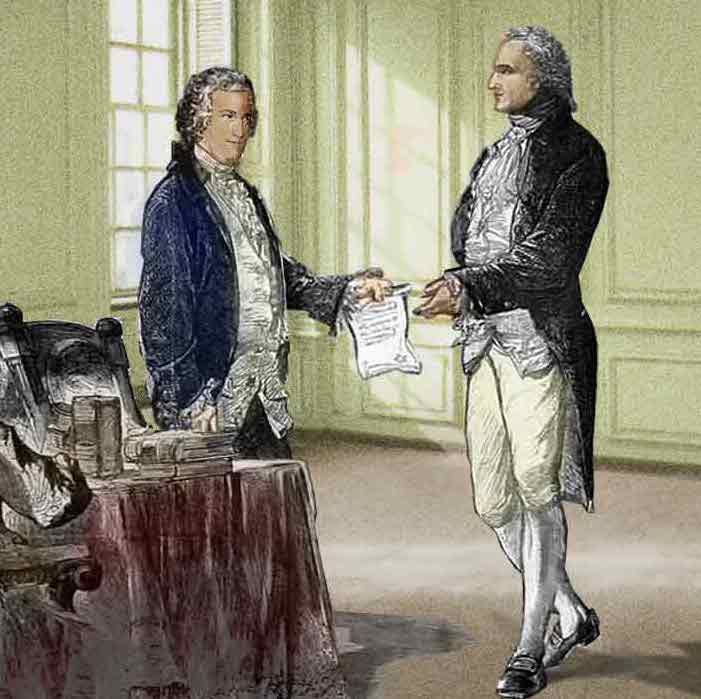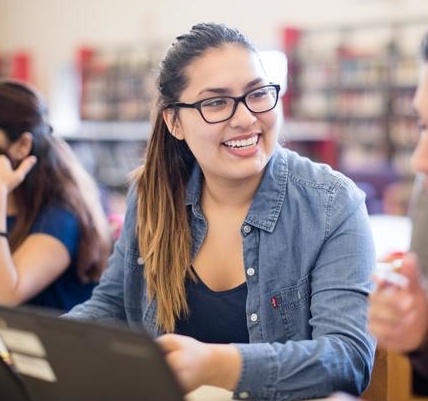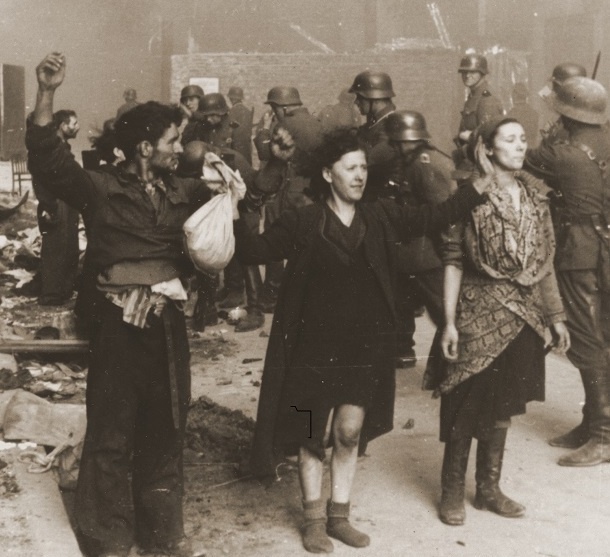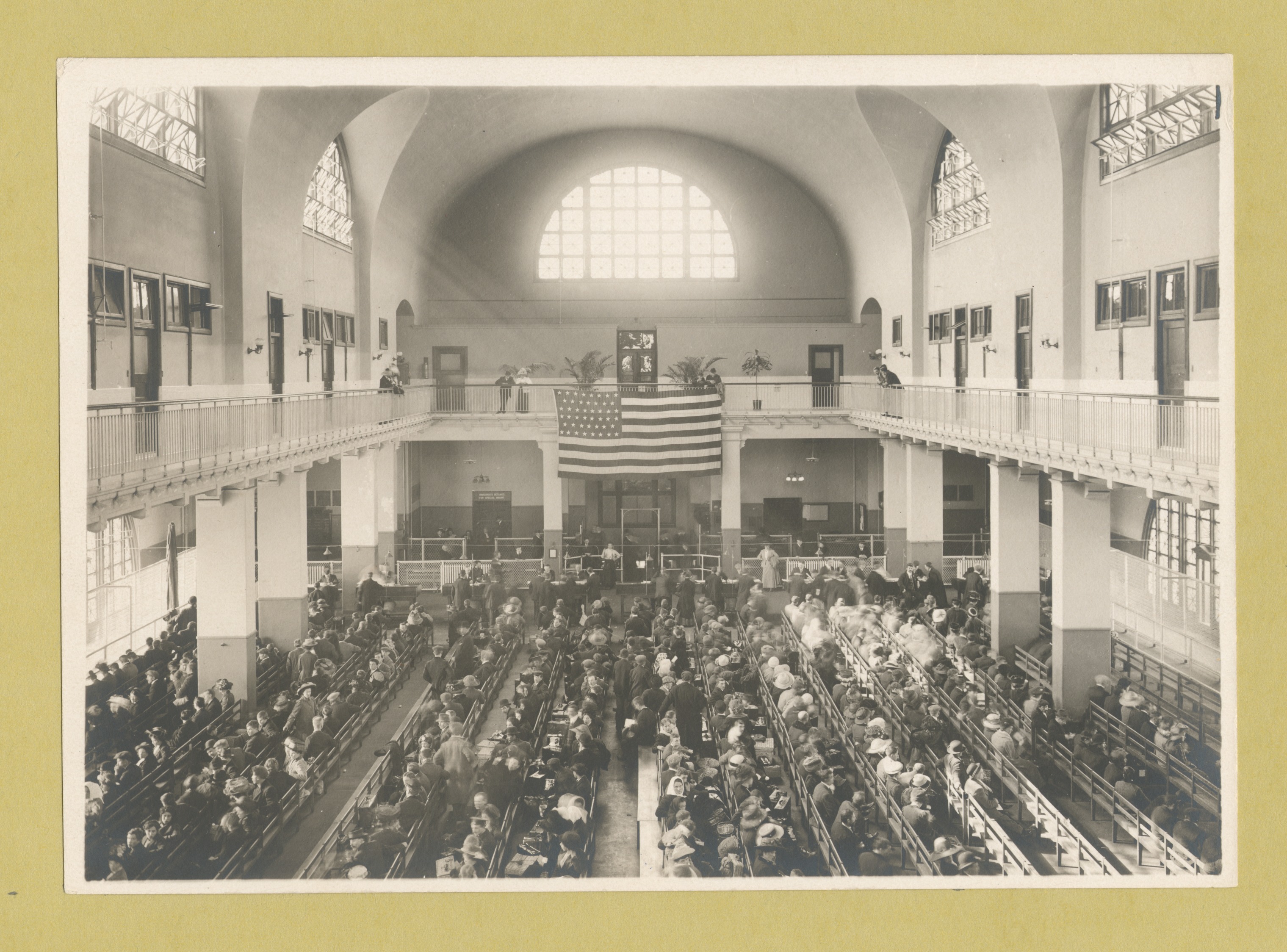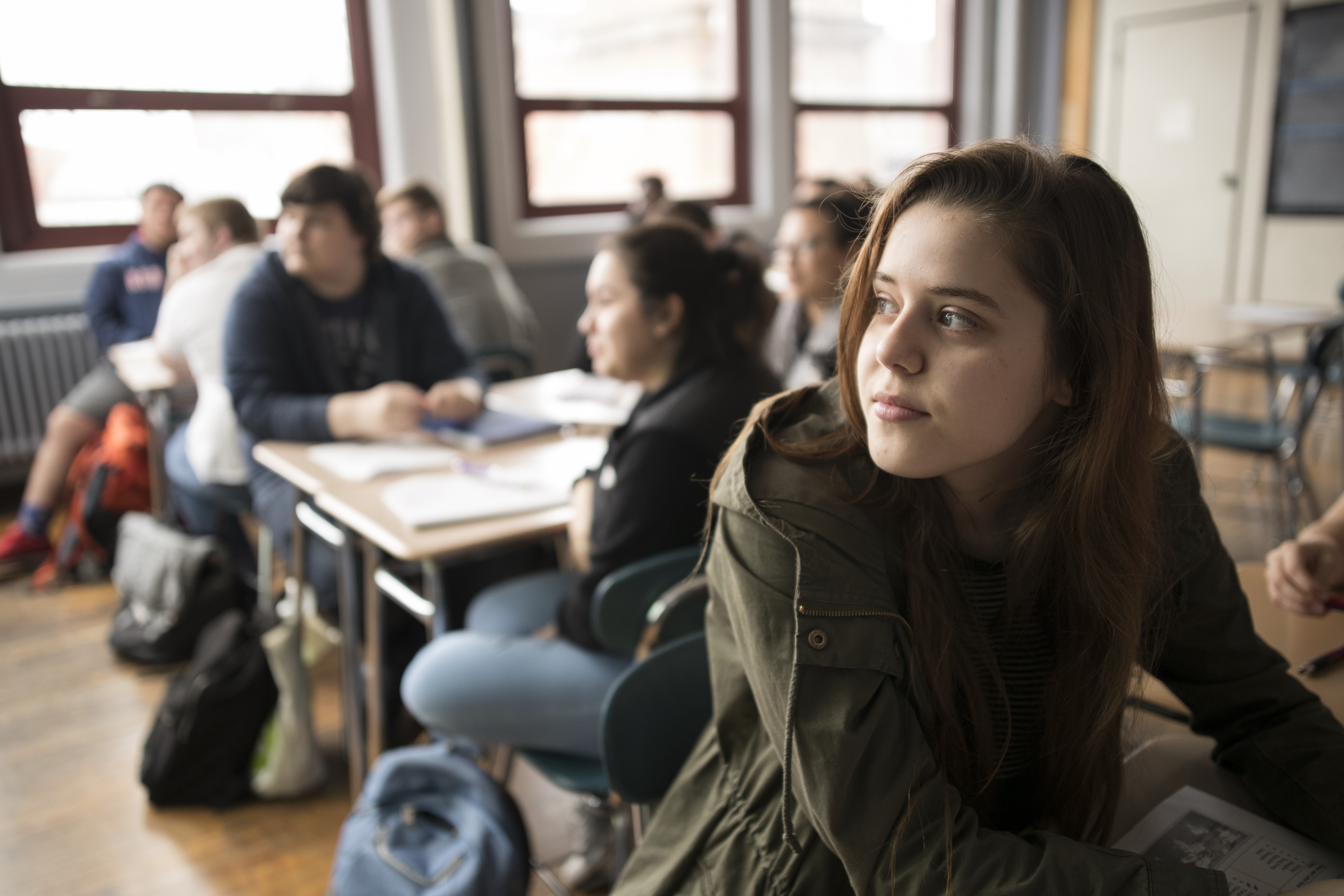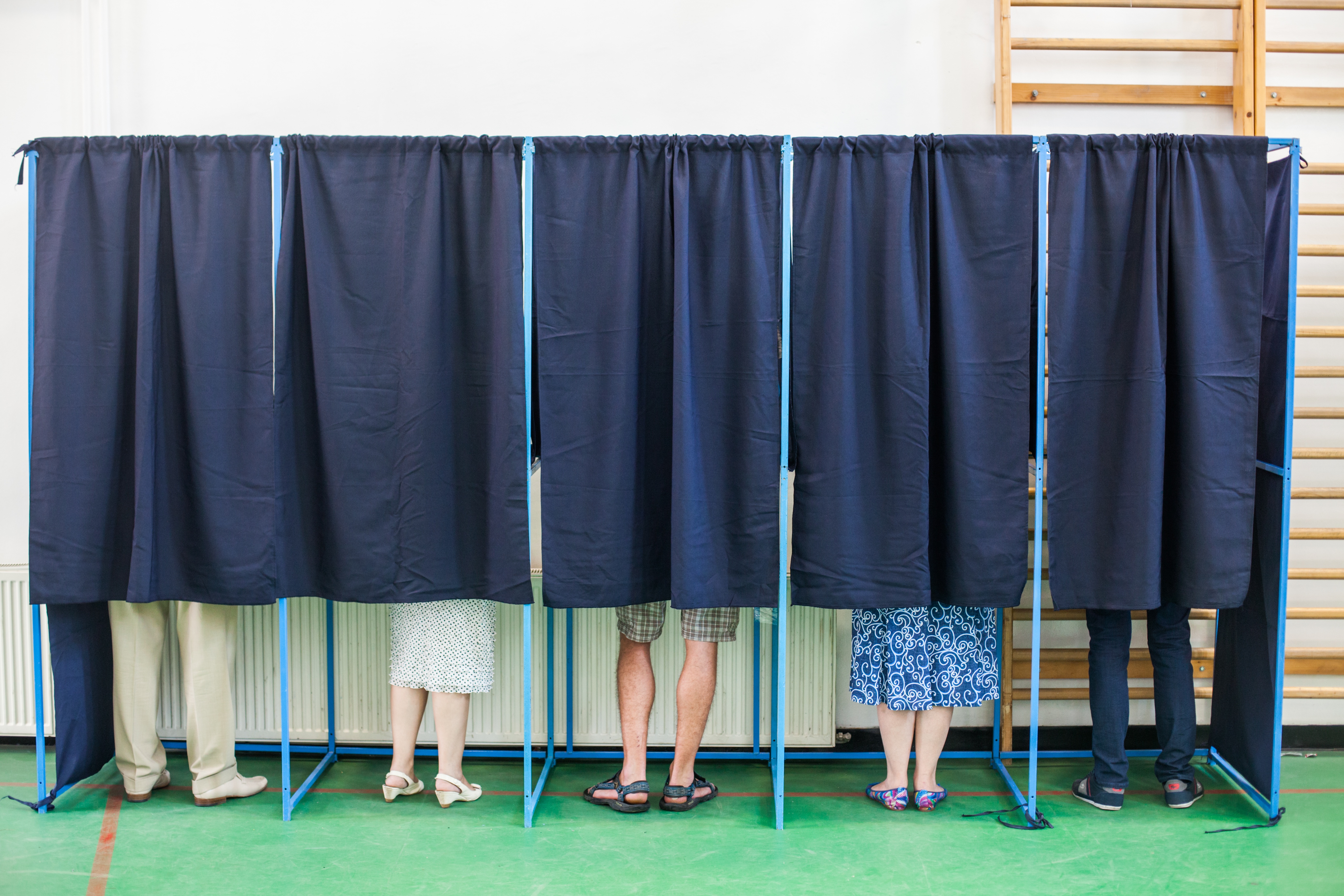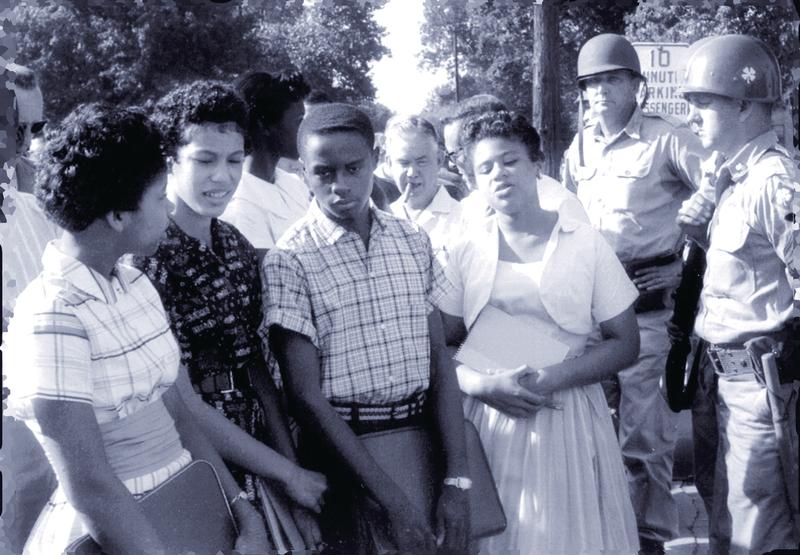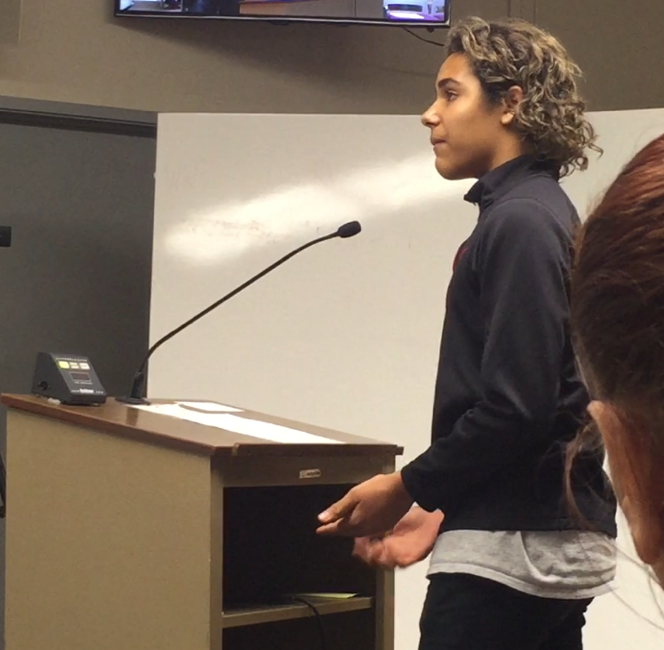Thanksgiving is right around the corner! And for a third year in a row, Facing History is partnering with StoryCorps to encourage high school students from all 50 states to participate in The Great Thanksgiving Listen. StoryCorps challenges teens and educators across the country to sit down with an elder or loved one, record a meaningful conversation, and make history by adding their voices to the StoryCorps Archive and to a special collection at the Library of Congress. It has become a growing national movement to gather the nation’s diverse voices and to recognize the importance of intergenerational listening.
3 Stories to Inspire You for the Great Thanksgiving Listen
Posted by Julia Malta-Weingard on October 24, 2017
Topics: The Great Listen
How George Washington Can Remind Us To Stay Vigilant Against Bigotry
Posted by Martha Minow on October 19, 2017
In August white supremacists in Charlottesville, Virginia erupted in violence during a rally, including an instance of terrorism that killed one and injured 19 others when a vehicle was purposely driven into a crowd. Even as other world events continue to demand our attention, it is important not to lose sight of the rifts and tension that Charlottesville shined a blinding spotlight on. If we look to history, President George Washington’s letter to the Hebrew Congregation in Newport, Rhode Island reminds us of the need to reclaim the nation’s vigilance against bigotry.
Topics: Democracy
Why Our Kids Need Social Emotional Learning
Posted by Jennifer and Peter Buffett on October 17, 2017
These are deeply troubling times. Every day, the rights of marginalized people face renewed attack. Hate crimes have surged. Our national dialogue continues to spiral further into destructive narratives of us vs. them.
Many of us are struggling to process these assaults on our values; to stand up for our friends and neighbors; to lift up the compassion, empathy, and care that bind us together. But while recent events have been difficult to understand for adults, they are even more difficult to explain to our children.
Topics: Social and Emotional Learning
What Does it Mean to "Resist"? Three Examples from the Holocaust
Posted by Stacey Perlman on October 11, 2017
What does the word “resistance” mean to your students? When we look to examples of history, we can see that resistance comes in many forms. As students strive to make sense of challenging histories like the Holocaust, understanding acts of resistance can provide perspective on the choices individuals made even when options were severely limited. While many of those persecuted by the Nazis lacked meaningful choices, others were able to resist physically and spiritually, by taking up arms in some cases, or striving to preserve their own dignity in others. Here are three examples of resistance during the Holocaust that you can use to jumpstart discussions in your classroom.
To Understand Immigration Today, Look At Your Own Family History
Posted by Dan Sigward on October 5, 2017
On October 3, 1965 President Lyndon B. Johnson signed the Immigration and Naturalization Act (INA). Previous immigration policies from the 1920s had set national-origin quotas, which discriminated against immigrants who were not from northern Europe. By abolishing these quotas, the INA contributed to a significant shift in demographics in the United States over the last 52 years.
Topics: Immigration, We and They
Help Your Students Reflect on the Tragic Las Vegas Shooting
Posted by Dan Sigward on October 2, 2017
We awoke this morning to learn of another horrific act of violence. Students and teachers arrived at school as news was breaking about the attack by a gunman on an outdoor concert in Las Vegas on Sunday evening. We mourn the victims and we are filled with sadness for those who have lost friends and loved ones.
Topics: current events
Today’s News, Tomorrow’s History: Should Non-citizens Be Allowed to Vote in Local Elections?
Posted by Monica Brady-Myerov on September 28, 2017
Today’s News, Tomorrow’s History is an ongoing series with Listenwise. This series connects Facing History’s themes with today’s current events using public radio to guide and facilitate discussions around the social issues of our time. We will take a look at voting requirements in local elections and the proposal in Maryland to allow non-citizens to vote.
Topics: Today's News Tomorrow's History, current events, Listenwise
60 Years After Little Rock: A Q&A with Terrence Roberts
Posted by Stacey Perlman on September 26, 2017
Sixty years ago, nine black students attended their first full day of school at Central High School in Little Rock, Arkansas. This landmark effort to desegregate the all-white school played a pivotal moment in the US Civil Rights Movement. Terrence Roberts was one of those students. In this Q&A he reflects back on the 60th anniversary of Little Rock and looks ahead to the progress that has been made—and the hard work that is still left to do—in the fight against racism.
Topics: Civil Rights Movement
How One Student Is Removing His School's Ties to the Eugenics Movement
Posted by Stacey Perlman on September 20, 2017
Kobi Johnsson knows the importance of a name. That’s why he felt he needed to take action when he learned his middle school’s namesake was an influential leader in the Eugenics movement. He and his father, Lars, set out on a three-year journey to change David Starr Jordan Middle School to something more inclusive.
Topics: Eugenics/Race Science
Six Webinars You Need Now to Navigate Current Events in Your Classroom
Posted by KC Kourtz on September 13, 2017
From Charlottesville to the announcement on DACA, there’s already a lot to talk about at the start of the school year. To create a safe and inclusive learning environment, you need to feel supported as a teacher. We’re offering a full slate of webinars that can help you feel prepared and ready to tackle challenging current events and difficult histories like the Holocaust. Check out these six webinars that will do just that for you.
Topics: Online Learning


